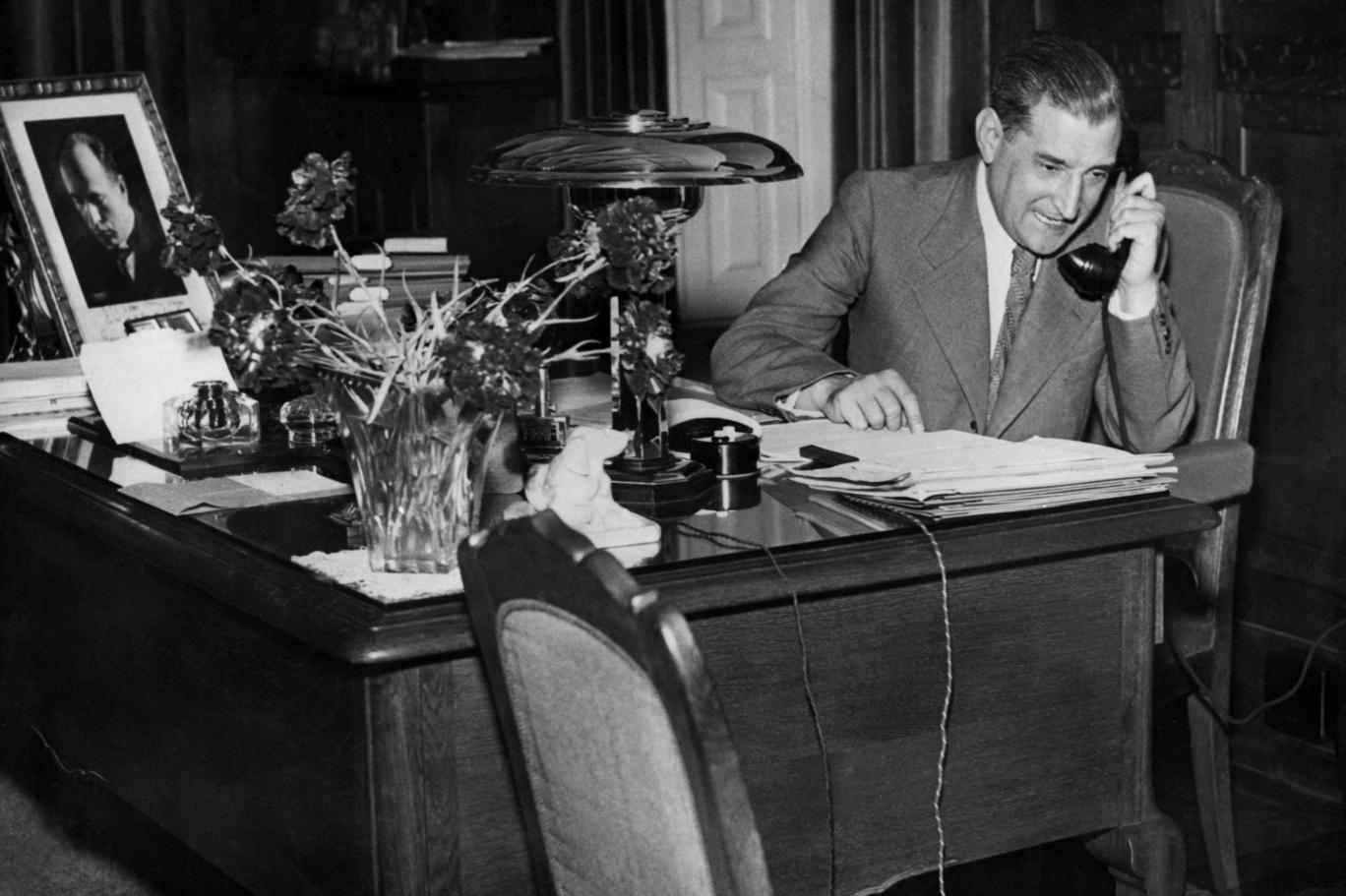Who is António de Oliveira Salazar?
In 1933, he established an authoritarian and corporate dictatorship with great similarities to Mussolini's Italy.

Antonio de Oliveira Salazar; Portuguese politician (Santa Comba-dao/near Lisbon, 1889-Lisbon, 1970). He entered the University of Coimbra in 1910 to study economics. After completing his undergraduate education in 1914, he became a lecturer at the same university and was promoted to professor of economics (1916). He participated in the founding of the Portuguese Catholic Center Party in 1921 and entered the parliament the same year. He did not accept the position of finance minister proposed by Gomes de Costo and Antonio Carmona, who seized power in a military coup in May 1926, because he was not given full authority. Following Carmona's election to the presidency in March 1928, he was appointed to the same post, this time with broad powers.
António de Oliveira Salazar (28 April 1889 – 27 July 1970) was a Portuguese politician and de facto dictator of Portugal from 1932 to 1968 serving as Prime Minister. Having come to power under the Ditadura Nacional ("National Dictatorship"), he reframed the regime as the Estado Novo ("New State"), a corporatist dictatorship that ruled Portugal from 1933 until 1974. Salazar was a political economy professor at University of Coimbra.
With a strict statist attitude, he first cut government expenditures and imports, lowered wages, and tried to balance the budget by increasing tax revenues. When the economy became somewhat closed to the outside, the World Depression of 1929 was mildly overcome. He took over this post after Carmona resigned from his presidency as well as the prime ministership, and started preparations for a new constitution (1932). In 1933, with the new constitution approved by popular vote, he established an authoritarian and corporate dictatorship in Portugal, which he called Estodo Nova (New State), which bears great resemblance to Mussolini's Italy.
In addition to his duties as the Prime Minister and the Minister of Finance, he also assumed the duties of the Minister of Defense and Foreign Affairs (1936). He established close relations with Mussolini's Italy. Immediately after the start of the civil war in Spain, he recognized the administration of General Franco, provided military and financial assistance, and signed a treaty of friendship and non-aggression (1936-1939). However, before the Second World War, he tried to follow a balanced policy by approaching the Allies. In 1943, when the war began to turn against the Axis powers, he allowed the Allies to use air and naval bases in the Azores.
By joining NATO (1949) he gained significant support for his country's admission to the United Nations. He used the military and the secret police organization PIDE to intimidate the opposition. The policy of isolation he followed made Portugal one of the most backward countries in Europe in terms of economy and culture. As opposition movements gained strength, he was forced to allow free elections to be held in 1945. However, he continued the repression regime by closing the United Democratic Movement, which was formed by the opposition groups, on the grounds that it was communist. After the death of Cormona (1951), he acted as the head of state for a while. During this period, he dealt with the increasing economic difficulties and the problems caused by the independence movements that started to develop in colonies such as Angola and Mozambique. On the other hand, despite all the pressure he applied, he could not prevent the opposition from getting stronger. When he suffered a cerebral hemorrhage in 1968, Marcelo Caetano was appointed in his place. He died after a while.
